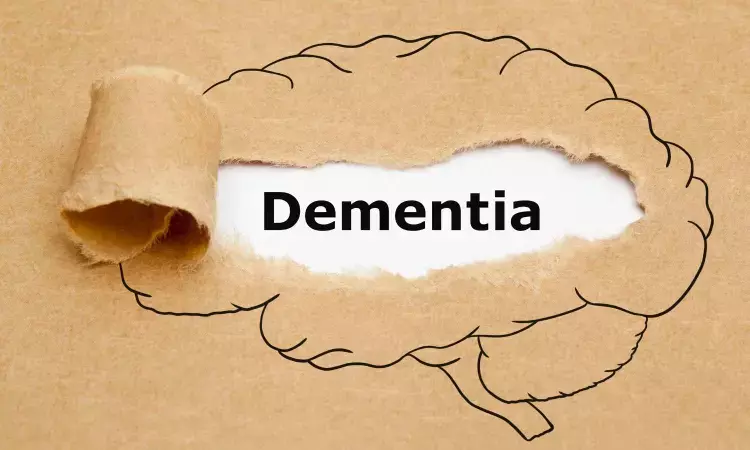- Home
- Medical news & Guidelines
- Anesthesiology
- Cardiology and CTVS
- Critical Care
- Dentistry
- Dermatology
- Diabetes and Endocrinology
- ENT
- Gastroenterology
- Medicine
- Nephrology
- Neurology
- Obstretics-Gynaecology
- Oncology
- Ophthalmology
- Orthopaedics
- Pediatrics-Neonatology
- Psychiatry
- Pulmonology
- Radiology
- Surgery
- Urology
- Laboratory Medicine
- Diet
- Nursing
- Paramedical
- Physiotherapy
- Health news
- Fact Check
- Bone Health Fact Check
- Brain Health Fact Check
- Cancer Related Fact Check
- Child Care Fact Check
- Dental and oral health fact check
- Diabetes and metabolic health fact check
- Diet and Nutrition Fact Check
- Eye and ENT Care Fact Check
- Fitness fact check
- Gut health fact check
- Heart health fact check
- Kidney health fact check
- Medical education fact check
- Men's health fact check
- Respiratory fact check
- Skin and hair care fact check
- Vaccine and Immunization fact check
- Women's health fact check
- AYUSH
- State News
- Andaman and Nicobar Islands
- Andhra Pradesh
- Arunachal Pradesh
- Assam
- Bihar
- Chandigarh
- Chattisgarh
- Dadra and Nagar Haveli
- Daman and Diu
- Delhi
- Goa
- Gujarat
- Haryana
- Himachal Pradesh
- Jammu & Kashmir
- Jharkhand
- Karnataka
- Kerala
- Ladakh
- Lakshadweep
- Madhya Pradesh
- Maharashtra
- Manipur
- Meghalaya
- Mizoram
- Nagaland
- Odisha
- Puducherry
- Punjab
- Rajasthan
- Sikkim
- Tamil Nadu
- Telangana
- Tripura
- Uttar Pradesh
- Uttrakhand
- West Bengal
- Medical Education
- Industry
Even mild increase in blood sugar may accelerate risk of developing dementia

South Korea: A recent study published in Scientific Reports supports the association between prediabetes and incident dementia or Alzheimer's disease and emphasizes that even mild hyperglycemia should not be left unnoticed.
Prediabetes includes impaired glucose tolerance (IGT) and impaired fasting glucose (IFG), each of which is a precursor to type 2 diabetes. The condition is regarded as a reversible state. It is conceivable that repeated exposure to a prediabetic state might further accelerate dementia risk.
Although various studies have investigated the relationship between glucose intolerance and dementia or cognitive function, the results are controversial, particularly in terms of the influence of prediabetes. Therefore, Kyungdo Han, Soongsil University, Seoul, Republic of Korea, and colleagues aimed to investigate the association between cumulative exposure to impaired fasting glucose and the risk of dementia in the general population.
For this purpose, the researchers identified 1,463,066 middle-aged and elderly people from a Korean nationwide population-based cohort database who had health examinations for four consecutive years. IFG and the risk of dementia were analyzed according to the number of IFG exposures (range 0–4) using the multivariable Cox proportional-hazards model. Impaired fasting glucose was defined as fasting blood glucose of 100–125 mg/dL.
The researchers showed a significant trend of higher risk of Alzheimer’s disease and all-cause dementia according to the cumulative exposure to IFG, but the effect seemed to be modest. They noted that the most prominent relationship was observed in non-obese subjects. No association was found between exposure to IFG and vascular dementia.
The study led to the following findings:
- During the median 6.4 years of follow-up, 7614 cases of all-cause dementia, 5603 cases of Alzheimer’s disease, and 1257 cases of vascular dementia occurred.
- There was a significant trend towards a higher risk of all-cause dementia and Alzheimer’s disease according to the cumulative exposure to IFG but with a modest (approximately 7–14%) increase in the hazards.
- A significant stepwise increase in the risk of all-cause dementia and Alzheimer’s disease was seen in non-obese subjects, whereas no significant association was observed in obese subjects.
"Our study adds some evidence about IFG's role as a risk factor for dementia," the researchers wrote. "The effect size was modest, but a significant association was seen between cumulative exposure to IFG and Alzheimer’s disease or all-cause dementia."
"Careful management of dysglycemia is expected to contribute to dementia prevention, although there is still a need for further evidence from more long-term prospective trials," they concluded.
Reference:
Yu, J., Lee, K., Kim, H., Han, K., & Lee, S. (2023). Cumulative effect of impaired fasting glucose on the risk of dementia in middle-aged and elderly people: A nationwide cohort study. Scientific Reports, 13(1), 1-8. https://doi.org/10.1038/s41598-023-47566-y
Dr Kamal Kant Kohli-MBBS, DTCD- a chest specialist with more than 30 years of practice and a flair for writing clinical articles, Dr Kamal Kant Kohli joined Medical Dialogues as a Chief Editor of Medical News. Besides writing articles, as an editor, he proofreads and verifies all the medical content published on Medical Dialogues including those coming from journals, studies,medical conferences,guidelines etc. Email: drkohli@medicaldialogues.in. Contact no. 011-43720751


